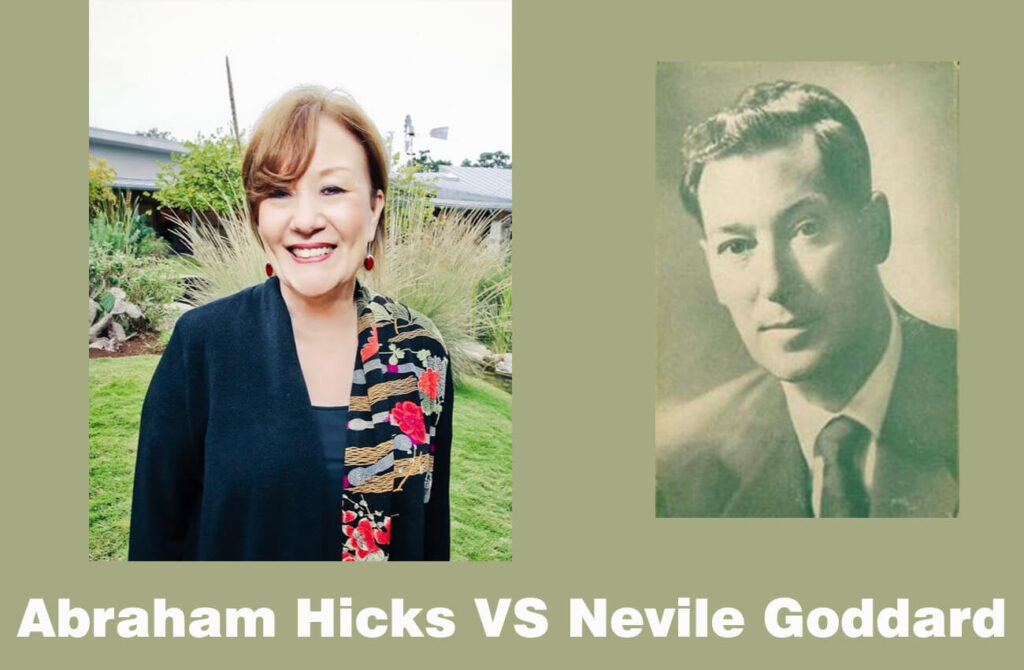Abraham Hicks and Neville Goddard are two of the most popular figures in the self-help and spiritual communities. While both of them offer insights on how to manifest desires and create the life you want, their approaches and teachings differ significantly. In this article, we will explore the differences between Abraham Hicks and Neville Goddard and examine the benefits and limitations of each.
Abraham Hicks is the collective name for a group of entities that communicate through Esther Hicks. The teachings of Abraham Hicks are based on the Law of Attraction, which states that like attracts like, and we can attract the experiences we desire by aligning our thoughts, feelings, and beliefs with what we want. Abraham Hicks teaches that we are all powerful creators and that we can use our thoughts and emotions to attract positive experiences and abundance in our lives.
Neville Goddard, on the other hand, was a spiritual teacher who taught about the power of the imagination. He believed that our imagination creates our reality, and that by using our imagination in a specific way, we can manifest our desires. Neville Goddard taught that we can create our reality by assuming the feeling of already having what we want, and by persisting in that feeling until it becomes a reality.
One of the primary differences between Abraham Hicks and Neville Goddard is the way they view the role of action in manifestation. Abraham Hicks teaches that taking action is an important part of the manifestation process, but it is not the most critical factor. They believe that when we are in alignment with what we want, inspired action will naturally follow, and we will be guided to take the right steps towards our desires. However, they also caution against taking action from a place of lack or desperation, as this can often lead to undesirable outcomes.

Neville Goddard, on the other hand, believed that imagination and feeling were the only things needed to manifest our desires. He taught that taking action was unnecessary and that we could create our reality purely through the power of our imagination. According to Goddard, once we assume the feeling of already having what we want, it will manifest in our physical reality without any further effort on our part.
Another significant difference between Abraham Hicks and Neville Goddard is their views on the role of contrast and negative emotions in the manifestation process. Abraham Hicks teaches that contrast, or negative experiences, can be beneficial because they help us clarify what we want and what we don’t want. They believe that negative emotions are a sign that we are out of alignment with our desires, and that we can use these emotions to pivot towards thoughts and feelings that are more in alignment with what we want.
Neville Goddard, on the other hand, did not believe in the value of negative emotions. He taught that all experiences, positive or negative, were a result of our imagination, and that we should not focus on the negative aspects of our lives. Instead, Goddard taught that we should focus solely on the end result we desire and assume the feeling of already having it, regardless of our current circumstances.
While both Abraham Hicks and Neville Goddard offer valuable insights into manifestation and creating the life we want, there are some limitations to their teachings. One limitation of the Law of Attraction, as taught by Abraham Hicks, is that it can sometimes lead to a focus on material possessions and external circumstances. While having material possessions and abundance can certainly contribute to our happiness, they are not the only factors that determine our overall well-being.
In conclusion, while Abraham Hicks and Neville Goddard offer valuable insights into manifestation and personal growth, their approaches and teachings differ significantly. Abraham Hicks focuses on the Law of Attraction and the power of positive thinking, while Neville Goddard emphasizes the role of imagination and visualization in creating our reality. The followers and readers of each may also differ in their preferences for manifestation techniques and spiritual practices. Ultimately, it is up to each individual to explore and decide which approach resonates best with them on their journey towards creating the life they desire.
